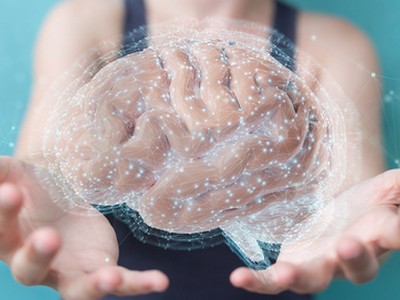
Depression In Adults Psychologist Southport (07) 5539 9798

Introduction: Is Anxiety Depression Psychologist Southport Near Me
In today's hectic and demanding world, it is not a surprise that lots of individuals have problem with tension, anxiety, and depression. These mental health conditions can have a profound influence on an individual's overall well-being and quality of life. While tension, stress and anxiety, and depression are typically considered as separate entities, there is a strong link between them. This post will check out the connection in between stress, anxiety, and anxiety, shedding light on the elements that contribute to their coexistence and the prospective strategies for managing these conditions effectively.
The Link In between Tension and Anxiety
Stress and anxiety often go together, as one can be a trigger for the other. When we experience tension, our bodies launch cortisol, frequently known as the stress hormone. This physiological action prepares us for the fight-or-flight response, enabling us to deal with potential dangers or challenges. Nevertheless, persistent or excessive stress can result in extended activation of the tension action system, resulting in anxiety.
Anxiety is defined by relentless sensations of worry, worry, or unease. It can manifest in various types such as generalized stress and anxiety condition (GAD), panic attack, social anxiety disorder (SAD), or particular phobias. Individuals with stress and anxiety might experience physical signs like increased heart rate, sweating, trembling, and difficulty concentrating. The presence of chronic stress can What Is Major Depressive Disorder Psychologist Southport Near Me intensify these symptoms and contribute to the advancement or worsening of anxiety disorders.
The Connection Between Anxiety and Depression
Anxiety and anxiety typically exist side-by-side in individuals who experience mental health challenges. In fact, research recommends that about half of those diagnosed with anxiety also satisfy the criteria for an anxiety disorder. The relationship between these two conditions is complex and multifaceted.
One possible description for this connection is that both stress and anxiety and depression share common underlying systems in the brain. Neurotransmitters like serotonin and norepinephrine play a vital role in managing mood, and imbalances in these chemicals can add to the advancement of both anxiety and anxiety. In addition, individuals with anxiety may experience negative idea patterns and rumination, which can contribute to the start or worsening of depressive symptoms.
Furthermore, the persistent nature of stress and anxiety can be emotionally draining and lead to sensations of hopelessness and anguish, attributes frequently connected with depression. The continuous concern, fear, and anticipatory anxiety that people with stress and anxiety experience can take a toll on their mental health and increase their vulnerability to developing depression.
The Effect of Stress on Depression
Stress is a significant contributing aspect to the development and exacerbation of depressive symptoms. When we are exposed to persistent stress, our bodies produce greater levels of cortisol, which can Isabella Whittingham Registered Psychologist Gold Coast interrupt the fragile balance of neurotransmitters involved in state of mind regulation. This disturbance can result in a reduction in serotonin levels, typically connected with depression.
Moreover, stress can also affect various elements of a person's life that are essential for maintaining good mental health. It can interfere with sleep patterns, interfere with appetite and eating routines, stress social relationships, and hinder total self-care practices. These elements integrated can contribute to the onset or worsening of depressive symptoms.
Strategies for Managing Stress, Stress And Anxiety, and Depression
While stress, anxiety, and anxiety can be challenging to navigate, there are numerous strategies individuals can employ to manage these conditions efficiently. It is important to keep in mind that what works for a single person might not work for another. Therefore, it may require time and experimentation to discover the most appropriate coping mechanisms.
Seeking Expert Help: Consulting a skilled psychological health professional such as an anxiety psychologist in Surfers Paradise is frequently the primary step in managing stress, stress and anxiety, and anxiety. These experts have the knowledge and proficiency to offer customized treatment plans customized to an individual's particular needs.
Cognitive-Behavioral Therapy (CBT) : CBT is a widely-used restorative technique that concentrates on recognizing and changing negative thought patterns and behaviors. It can help people establish much healthier coping systems, challenge irrational beliefs, and manage tension, stress and anxiety, and depression more effectively.
Medication: In many cases, medication might be necessary to handle serious signs of anxiety and anxiety. Antidepressants and anti-anxiety medications can assist control brain chemistry and relieve symptoms. However, it is essential to work closely with a doctor to find the ideal medication and dosage.
Lifestyle Modifications: Participating in routine exercise, practicing mindfulness or meditation strategies, maintaining a healthy diet, getting enough sleep, and focusing on self-care activities can significantly impact psychological health. These way of life adjustments can decrease stress levels, enhance state of mind, and boost general wellness.
Social Support: Building a strong support network of pals, family members, or support groups can offer people with the emotional support they need when browsing tension, anxiety, and depression. Having someone to confide in and lean on throughout difficult times can make a substantial distinction in handling these conditions.
Stress Management Techniques: Incorporating stress management methods such as deep breathing workouts, progressive muscle relaxation, journaling, or participating in pastimes that bring delight can help individuals decrease tension levels and promote relaxation.
FAQs
1. What are the main signs of anxiety?
- Symptoms of stress and anxiety consist of extreme worry or fear, restlessness or sensation on edge, irritation, difficulty focusing or sleeping, muscle tension, and physical symptoms like increased heart rate or shortness of breath.
2. How do I understand if I have depression?
- Common signs of anxiety consist of relentless feelings of sadness or vacuum, loss of interest in activities as soon as taken pleasure in, changes in cravings or weight, problem sleeping or oversleeping, feelings of insignificance or regret, fatigue or loss of energy, trouble concentrating, and ideas of death or suicide.
3. What is the distinction in between stress and anxiety and depression?
- While anxiety is defined by excessive worry and fear, depression is marked by persistent sensations of sadness, hopelessness, and a loss of interest in activities. Stress and anxiety focuses more on future-oriented concerns, while depression centers around feelings of despair and emptiness.
4. Can stress cause anxiety and depression?
- Yes, chronic or excessive stress can contribute to the development or worsening of anxiety and depression. Stress interrupts the delicate balance of neurotransmitters associated with state of mind policy, resulting in imbalances that can set off these conditions.
5. How can I manage stress effectively?
- Effective stress management strategies consist of workout, mindfulness or meditation practices, keeping a healthy diet plan, getting sufficient sleep, participating in hobbies or activities that bring happiness, seeking assistance from liked ones, and practicing relaxation strategies like deep breathing workouts or progressive muscle relaxation.
6. When must I seek expert help for stress, stress and anxiety, or depression?
- It is recommended to seek expert help if tension, stress and anxiety, or depression substantially disrupt daily performance, relationships, work performance, or overall lifestyle. A mental health professional can offer a precise medical diagnosis and suggest suitable treatment options.
How To Get Rid Of Anxiety And Depression Psychologist Southport
Depression And Anxiety Symptoms Psychologist Southport Near Me
Isabella Whittingham Registered Psychologist Gold Coast
Surfers Paradise Chiropractic Centre-Dr. Bruce Whittingham
12 Thomas Drive, Surfers Paradise QLD 4217
(07) 5539 9798
https://surfersparadisechiropractic.com.au
Depression Attack Psychologist Southport Near Me